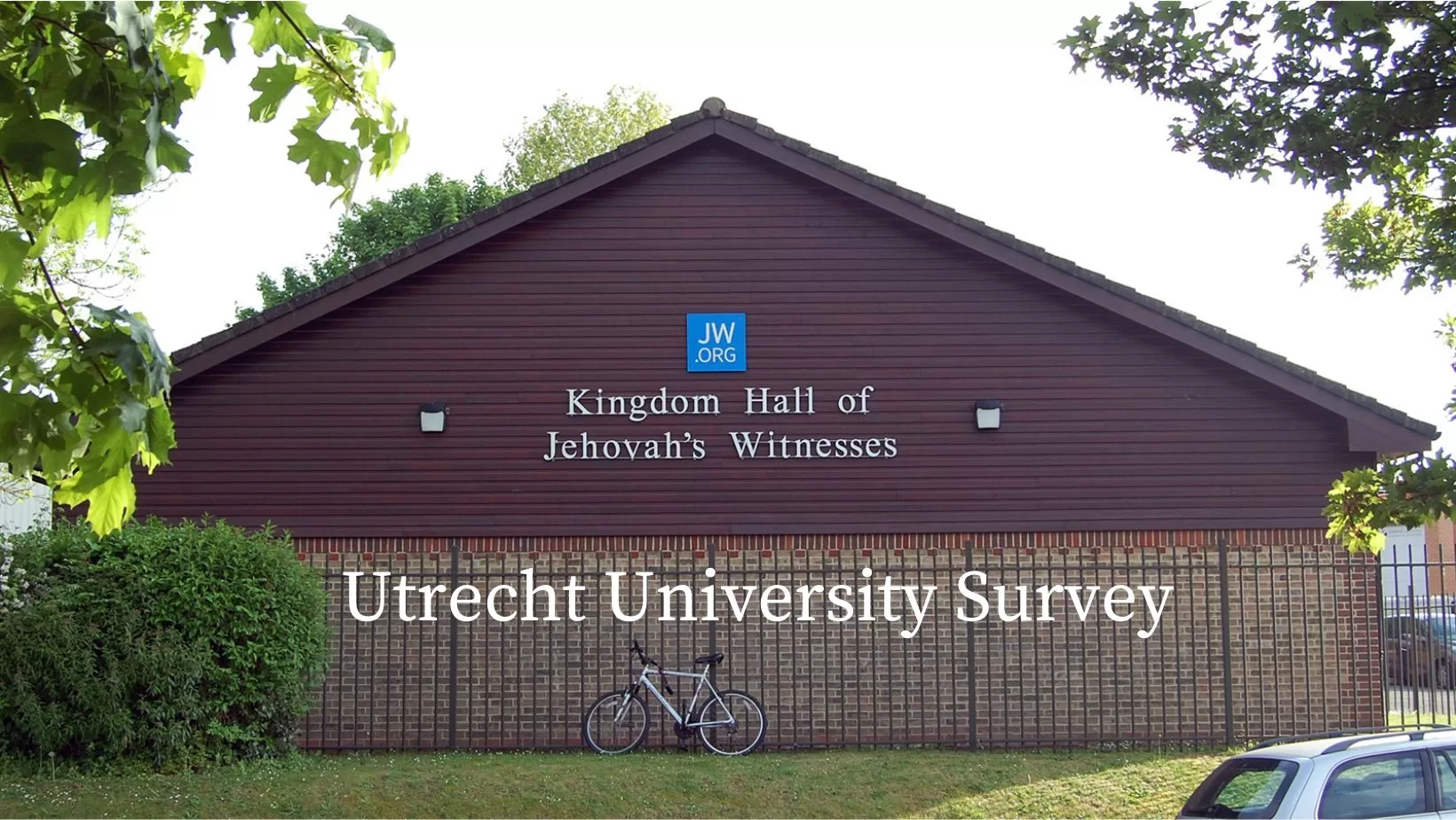More than 11 years revealing secrets because there is no excuse for secrecy in religion – w1997 June 1; Dan 2:47; Matt 10:26; Mark 4:22; Luke 12:2; Acts 4:19, 20.

Photo - religionnews.com - March 2022
The way Jehovah’s Witnesses deal with child sexual abuse is traumatic for victims.
Researchers at Utrecht University conclude this on the basis of 751 stories from members and ex-members of the religious organization.
An attempt to keep that investigation out of the open ended in court on Thursday afternoon.
Originally published on Trouw by Marinde van der Breggen & Rianne Oosterom on 23 Jan 2020
Of the people who participated in the study, 292 people experienced abuse themselves. It is striking that nine people say that the abuse is still taking place. According to investigators, the Witnesses do not adequately handle reports of abuse.
Within the society, reports of abuse are often handled internally by a committee of elders, male executives. Such a committee will only be set up when there are two witnesses to the abuse, or when the perpetrator has confessed. If not, the matter is left “in Jehovah’s hands.”
Three quarters of the victims give the handling of their case an unsatisfactory mark. Of all the victims who answered that question, nearly 60 percent gave the Witnesses’ approach a score of 1. Two-thirds of the victims who did go to the police are satisfied with how they were helped there. The most frequently given mark is a 10.
Closed Community
The findings of the research, which was outsourced by the Scientific Research and Documentation Center (WODC) to Utrecht University, are in line with the conclusions that Trouw drew in a series of publications in 2017.
The strong male hierarchy, the closeness of the community of Jehovah’s Witnesses, and strict sexual morals contribute to the painful experience of victims, the researchers noted in in-depth interviews with ten (former) members of the society. “They are not screwed once, but twice,” says lead researcher Kees van den Bos.
Investigators are calling on the Witnesses to establish an internal hotline for victims of abuse. The researchers also want a cultural change – more openness and transparency about sexual abuse – in which a clear role is also reserved for women.
The report was sent to the Lower House with an accompanying letter from Minister Dekker. This shows that the Jehovah’s Witnesses do nothing with the recommendations. The minister calls this “incomprehensible” and wants to have one last penetrating conversation with the Witnesses.
Interim injunction
The religious group initially cooperated in the investigation, but tried to stop the publication at the last minute by instituting summary proceedings. For both the WODC and the university, this was a situation they had never experienced before. The judge did not agree with the request of the Witnesses, who presented 300 pages of arguments. He considered addressing abuses in society more important than any damage to the reputation of the church. The judge takes it seriously that this is not an arbitrary publication, but an investigation desired by the House of Representatives.
In a 23-page response to the minister, the religious group speaks of “very serious flaws” in the investigation and calls several passages “extremely hurtful” or “particularly discriminatory”. The organization is now considering further legal action.
Victim Marianne de Voogd, who previously told Trouw about her abuse at the age of thirteen by a man from her congregation, finds the attitude of the religious group disappointing. Still, she feels recognition after the investigation has become public. “This means that the Jehovah’s Witnesses can no longer dismiss me as a liar.”

Lester Somrah writes about the beliefs and practices of Jehovah’s Witnesses on his social media platforms and was baptized as a member in 1998.